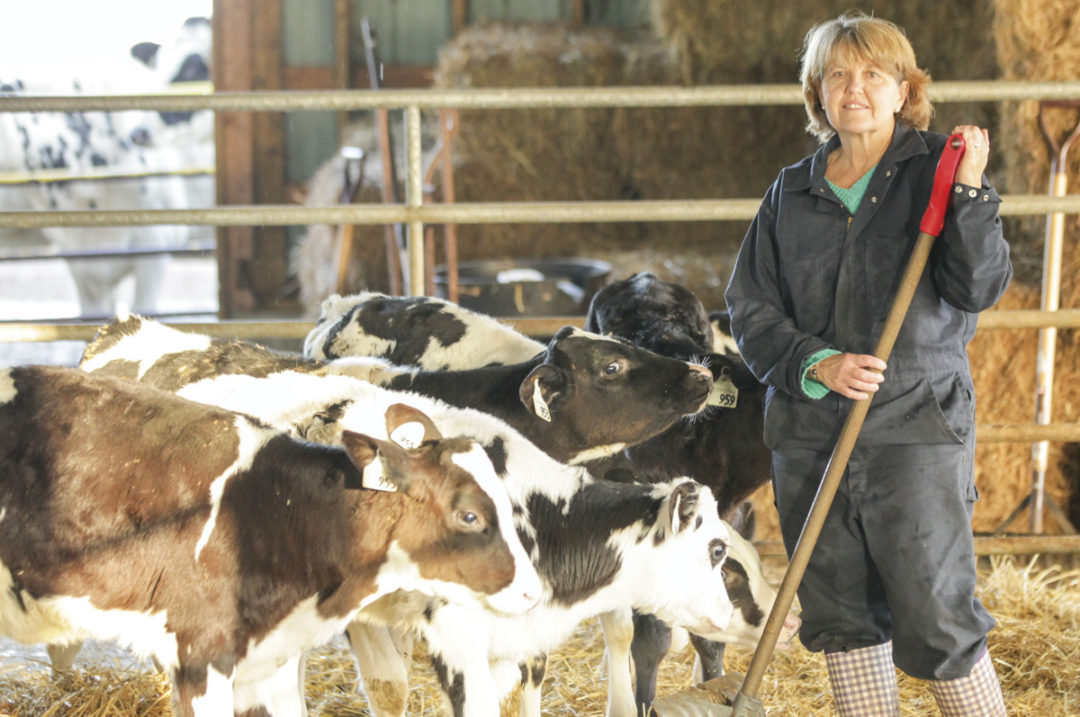On March 30, the National Farm Animal Care Council (NFACC) and Dairy Farmers of Canada (DFC) released the updated Code of Practice for the Care and Handling of Dairy Cattle. This powerful tool, like Canada’s other Codes of Practice, helps meet changing consumer, marketplace and societal expectations relative to farmed animal welfare. Based on current science and stakeholder feedback, the codes are designed to support responsible care practices and keep everyone involved in animal care and handling on the same page as we move toward the future of farming.
We know our dairy farmers already follow some of the most stringent standards in the world, and the new Code of Practice for the Care and Handling of Dairy Cattle will help farmers continue to provide the best in animal care while staying consistent with our industry's history of continuous improvement. This commitment to quality and care means dairy farmers are always looking to stay ahead of the curve and improve their practices, reflecting current science on the welfare of their animals.
The new Code of Practice will replace the 2009 Code as of April 1, 2024 (unless indicated otherwise in a requirement with a later phase-in date). The current dairy cattle Code of Practice will remain in effect until March 31, 2024.
How was feedback incorporated into the new code?
A draft of the revised Code of Practice for the Care and Handling of Dairy Cattle was released for public comment in November 2021, and a significant number of farmers submitted comments. Participation in the public feedback process was excellent, and input had a clear impact on the resulting revised version. Many of the final requirements in the Code of Practice were streamlined or clarified due to the comments received. Of note, some requirements were also removed.
How do the 2023 and 2009 versions compare?
The most impactful changes in this Code of Practice, compared to 2009, are the requirements to provide more opportunities for social contact for calves (i.e., transitioning to pair or group housing for pre-weaned calves), and more opportunities for movement for lactating cows and dry cows. These updates are supported by science in promoting overall good welfare.
Some farms will find some changes more challenging and may need to plan investments in their barns. Both NFACC and DFC appreciate that such investments will take time and could be significant for some farms. That’s why up to eight years is given to implement changes that require more investments on-farm.
How do the updates affect proAction?
The changes to the Code of Practice for the Care and Handling of Dairy Cattle will eventually be incorporated into the proAction program. Some of the new or revised requirements are already covered in proAction, and others are already common practices on many farms. The proAction committees will evaluate incorporating the new or revised requirements into the animal care module over the next few years, with first changes to be expected in September 2025.
It is important to note that provincial animal enforcement organizations may expect that these requirements are met according to the timelines mentioned earlier in the case of an animal care investigation, regardless of the requirement status in proAction.
Where can farmers find out more about the new code?
Dairy farmers across Canada are well positioned to achieve all requirements in the Code of Practice for the Care and Handling of Dairy Cattle.
Detailed information regarding the 2023 Code is available on DFC’s new Farmer Resources portal, which includes:
- The complete Code of Practice for the Care and Handling of Dairy Cattle
- Comparisons between 2023 and 2009 requirements
- Summary of key impactful requirements and timelines
The Farmer Resources portal can be found here. You can also email and request to be added to the mailing list of DFC’s newsletter, Dairy Express, to receive up-to-date information sent directly to your inbox.
Dairy Farmers of Canada (DFC) is the national policy, lobbying and promotional organization representing Canadian dairy producers. DFC strives to create stable conditions for the dairy sector in our country. It also seeks to maintain policies that promote the sustainability of Canadian dairy production and promote dairy products and their health benefits. Visit DFC's website for more information.








